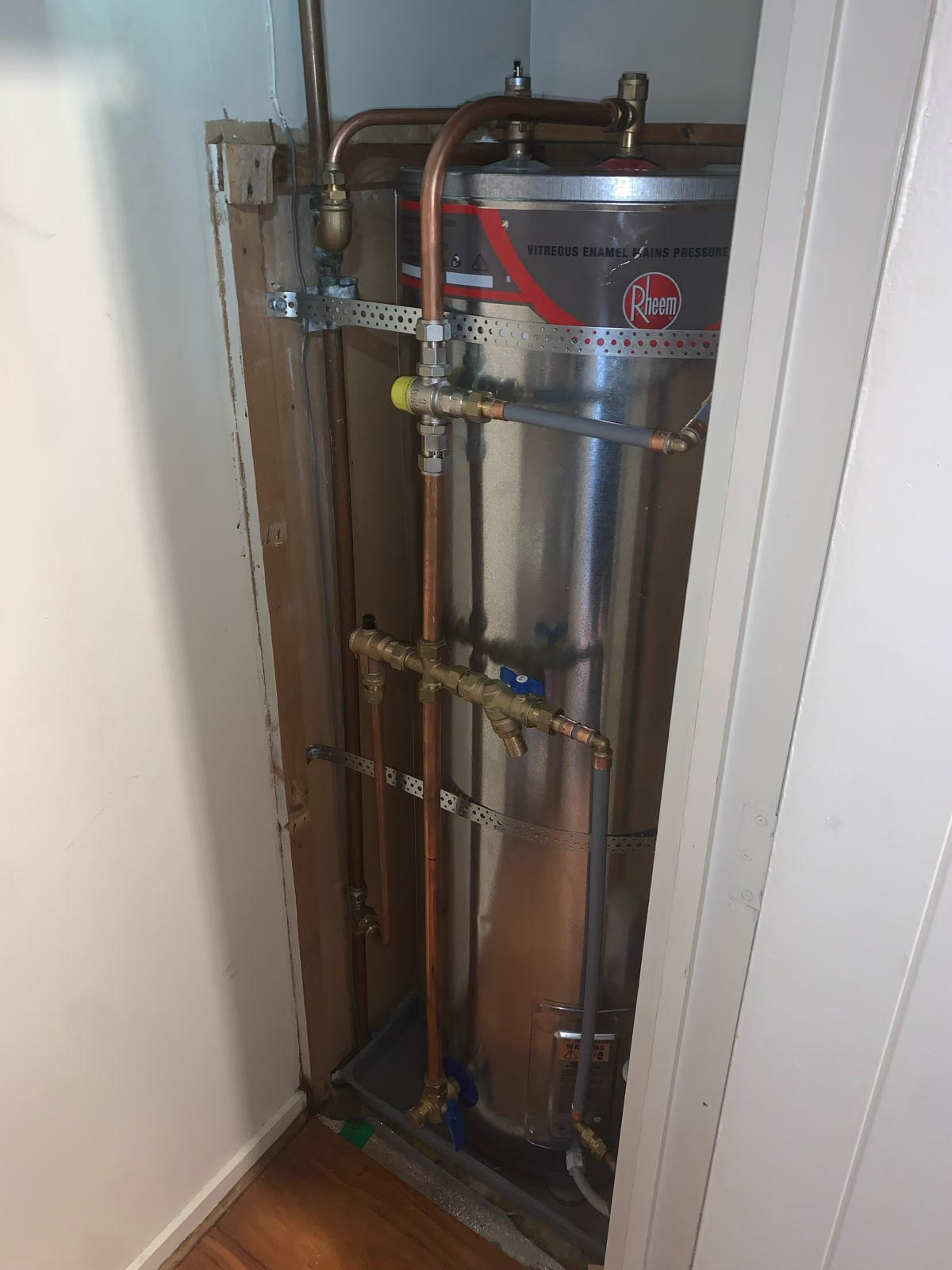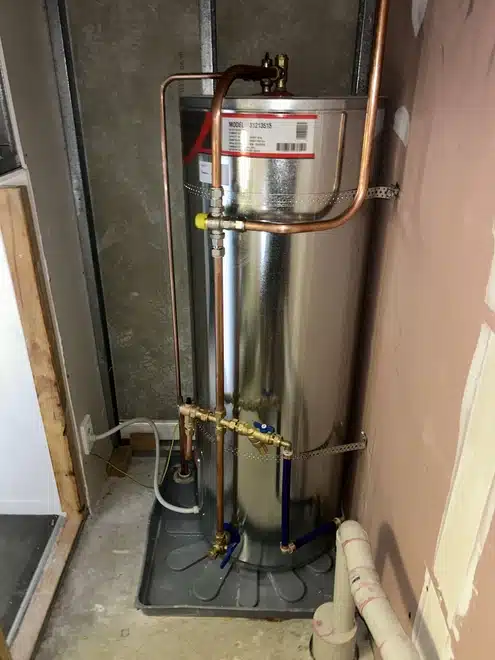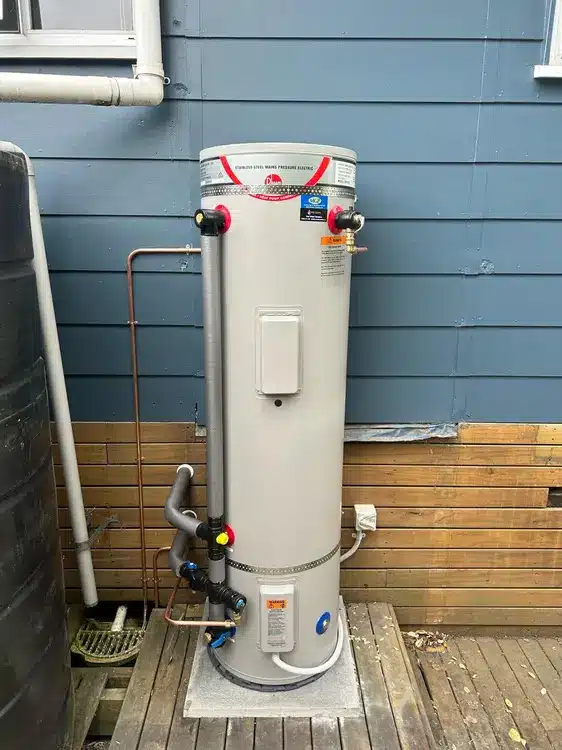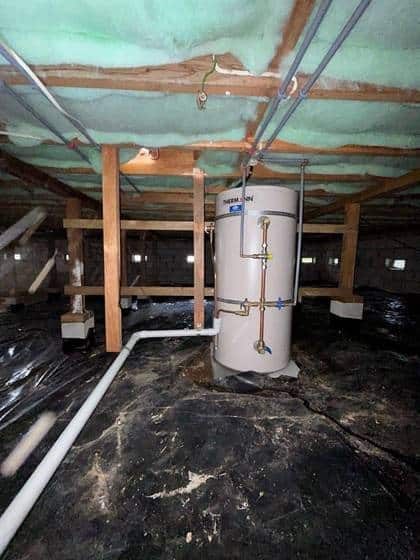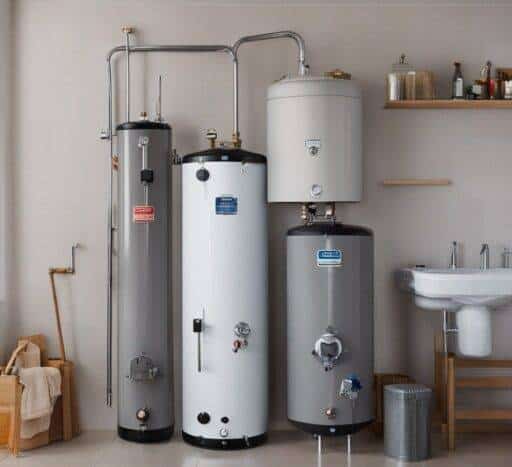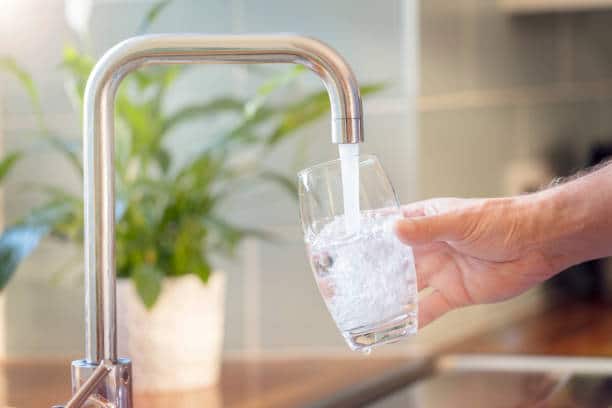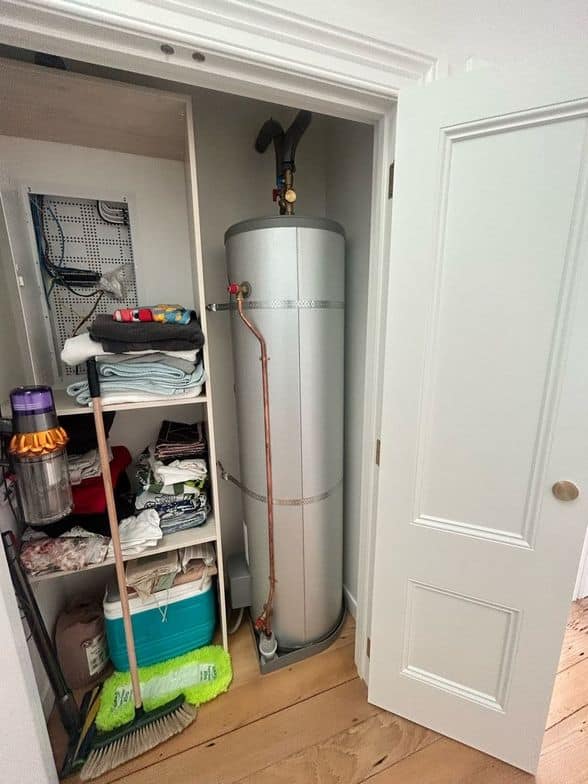Selecting Your Hot Water Cylinder
1. Understand the Different Types
- Electric Hot Water Cylinders: Still the most prevalent system in NZ, modern electric cylinders are more efficient and versatile than their predecessors. They can be installed either internally or externally, making them a cost-effective choice, especially when replacing older units where existing pipework can’t be modified.
- Gas Hot Water Systems: Gas solutions like continuous flow systems are efficient and provide hot water on demand. Brands like Rinnai Infinity, Rheem Integrity, and Thermann are popular options. One of their major advantages is that you’re billed only for the water you warm up. Plus, they’re compact, ensuring they don’t take up too much space.
- Hot Water Heat Pumps: Championed for their eco-friendly and energy-efficient design, these pumps serve as an optimal hot water solution for NZ homes. With capabilities to reduce energy use by up to 70%, they promise both environmental benefits and significant long-term savings.
- Solar Hot Water Systems: Harnessing the power of the sun, solar hot water systems are an eco-friendly and sustainable choice. They utilise solar panels to absorb sunlight, converting it into energy used to heat water. Though there’s an initial investment for setup, in the long run, they can lead to significant savings on energy bills, while also reducing your carbon footprint. Ideal for regions with ample sunlight, these systems can sometimes be paired with electric or gas systems for backup during overcast days.
2. Assess Your Home’s Size and Water Usage
- A large family home will have different needs compared to a one-bedroom apartment. How many bathrooms do you have? How many people reside in the house? Do you frequently run short of hot water? Answering these questions will help pinpoint the size and type of hot water system you require.
3. Consider Energy Efficiency and Environmental Impact
- If you’re environmentally conscious or looking to reduce your energy bills, consider systems like hot water heat pumps, which are both cost-effective and eco-friendly.
4. Warranty and After-Sales Support
Opt for brands and suppliers that offer robust warranties and stellar after-sales support. It’s reassuring to know that should anything go awry, you’re covered.
5. Consult Professionals
Companies like Hot Water Solutions, with a combined 40 years of experience, can provide invaluable insights. Our team of master plumbers and gas hot water cylinder system installers can guide you, ensuring you make an informed decision.
6. Think About Future Proofing
Are you considering expanding your family or adding more bathrooms? It might be worth investing in an electric or gas water heater system that caters to future needs.
7. Factor in Installation and Maintenance Costs
While the initial cost is crucial, don’t overlook installation and future maintenance expenses. Some systems might be cheaper to purchase but can cost more in the long run due to frequent servicing needs.
Hot Water Cylinder Size and Installation Location: What You Need to Know
- Space Constraints: Before making a purchase, you must evaluate where you’d like to install the cylinder. Do you have a dedicated utility room or a closet space? Or are you considering placing it outside? The size of the cylinder will dictate its feasible installation spots.
- Internal vs External Installation: Many modern electric hot water cylinders can be installed internally or externally. If you’re short on interior space, an outdoor installation might be an option. However, this might be more suitable for locations where weather extremes aren’t an issue, although many cylinders designed for external use come with insulation to combat weather-related inefficiencies.
- Accessibility: While it’s essential to choose a space-efficient location, it’s equally crucial to ensure the cylinder remains accessible. This will make maintenance, repairs, or replacements much easier.
- Pipe Length and Heat Loss: Ideally, the cylinder should be situated close to the points of use (like bathrooms or kitchens) to minimise the length of pipes needed. Longer pipes can lead to more heat loss, reducing the system’s efficiency.
- Aesthetic Considerations: For homeowners who are particular about aesthetics, hiding the cylinder in a utility room, basement, or enclosed space can keep it out of sight, especially if it’s bulky.
- Safety and Ventilation: If you’re considering gas systems, proper ventilation is crucial. Ventilation often dictates where you can safely install the unit. Similarly, certain systems might have specific installation requirements to ensure safety, such as a safe distance from flammable materials.
Making the Right Choice for Your Home's Hot Water Needs
Choosing a hot water cylinder from options like gas or electric hot water systems isn’t just about today’s needs; it’s a long-term investment. Prioritise energy efficiency, reliability, and professional installation to ensure you enjoy hot water whenever you want without any hitches.
Remember, it’s not just about heating water; it’s about the comfort and luxury of your home. Choose wisely!

